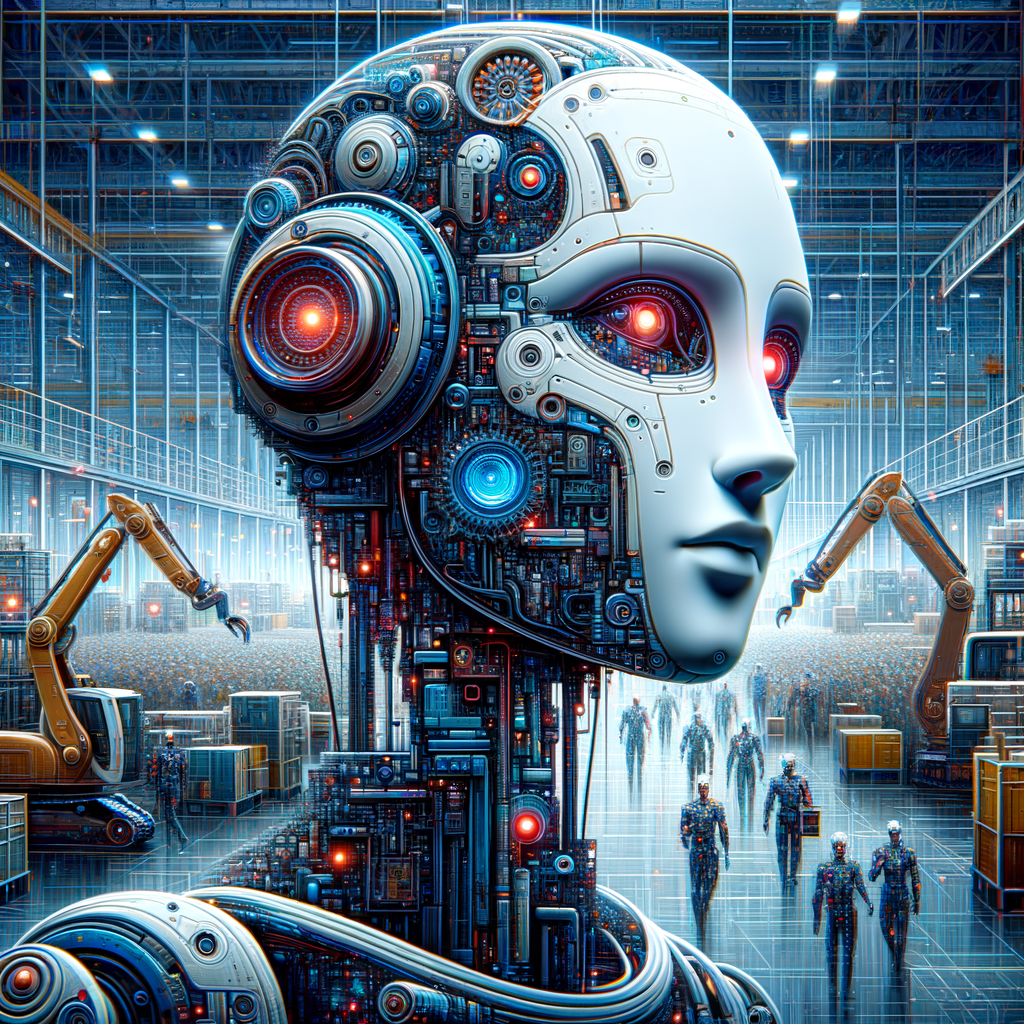
AI-Powered Robotics: Transforming Industries with Intelligent Automation
Explore the fascinating world of AI-powered robotics and discover how intelligent automation is transforming industries across the globe. From manufacturing to healthcare, learn about cutting-edge technologies that are driving unprecedented efficiency and innovation.
AI-Powered Robotics: Transforming Industries with Intelligent Automation
Artificial Intelligence (AI) has permeated various sectors, forging new paradigms in automation and efficiency. Among the facets of AI that are reshaping industries, AI-powered robotics stands out for its potential to revolutionize how tasks are performed across diverse domains. In this article, we embark on a journey to explore how intelligent automation, enabled by AI, is transforming core industries such as manufacturing, healthcare, and logistics.
The Rise of Intelligent Robotics
Robots have been integral to industries for decades, primarily focusing on repetitive and time-consuming tasks. However, traditional robots were limited to executing predefined instructions without any adaptability. The integration of AI into robotics has marked a significant departure, equipping machines with the cognitive ability to learn, adapt, and evolve in real-time environments.
AI algorithms enable robotic systems to analyze massive datasets, recognize patterns, and make informed decisions based on the context. Technologies such as Machine Learning (ML) and Deep Learning (DL) empower robots to improve their performance over time, much like humans adapting to new challenges.
Transformative Impact on Industries
Manufacturing
In the manufacturing sector, AI-powered robotics is spearheading the move towards Industry 4.0. Smart factories equipped with intelligent robots can optimize production processes by predicting maintenance needs and dynamically adjusting operations based on demand fluctuations. Collaborative robots, or cobots, work alongside human counterparts, enhancing precision and safety by handling complex and hazardous tasks.
The introduction of advanced vision systems allows robots to perform intricate assembly jobs requiring high precision. AI's predictive capabilities further facilitate efficient supply chain management, minimizing downtime and maximizing resource utilization.
Healthcare
Healthcare is another critical domain where AI robotics is making substantial strides. Surgical robots are becoming increasingly common, assisting surgeons with enhanced precision, stability, and flexibility during operations. AI-driven diagnostic systems analyze vast amounts of medical data to detect anomalies and accurate diagnoses, often surpassing human capabilities.
Furthermore, rehabilitative robots are aiding patients in recovery by providing personalized therapy programs that adapt based on the patient’s progress. Elderly care robots are also emerging, designed to assist the aging population with daily activities, ensuring safety and improving quality of life.
Logistics and Beyond
Logistics is undergoing a transformation with AI-powered automation systems managing warehousing, transportation, and distribution with unparalleled efficiency. Autonomous drones and vehicles are being deployed for faster, cost-effective delivery solutions.
Moreover, sectors like agriculture, retail, and defense are witnessing a surge in AI robotic applications, each harnessing AI's power to address unique challenges and streamline operations.
Challenges and Future Prospects
Despite the revolutionary potential, AI-powered robotics faces significant challenges. Ethical concerns, cybersecurity vulnerabilities, regulatory hurdles, and the need for robust data privacy frameworks must be addressed to ensure sustainable and ethical integration across industries.
The future holds immense potential for AI-powered robotics. As technology continues to advance, we can anticipate smarter, more versatile robots capable of transforming human endeavors. The collaboration between humans and intelligent machines promises a future where industries are not only more efficient but also more innovative and sustainable.
Conclusion
AI-powered robotics is no longer a futuristic concept; it is a tangible reality reshaping industries worldwide. By automating complex processes and improving decision-making, intelligent robots are driving unprecedented levels of efficiency and innovation. As we stand on the cusp of technological evolution, embracing AI-powered robotics could be the key to unlocking a transformative future.
This article offers a glimpse into the transformative capabilities of AI in the realm of robotics. It highlights the pressing need for ethical safeguards and collaborative efforts to realize the full potential of intelligent automation in industries. The seamless integration of AI into robotics is not just about enhancing productivity but about forging a future where human and machine coexist for mutual advancement.